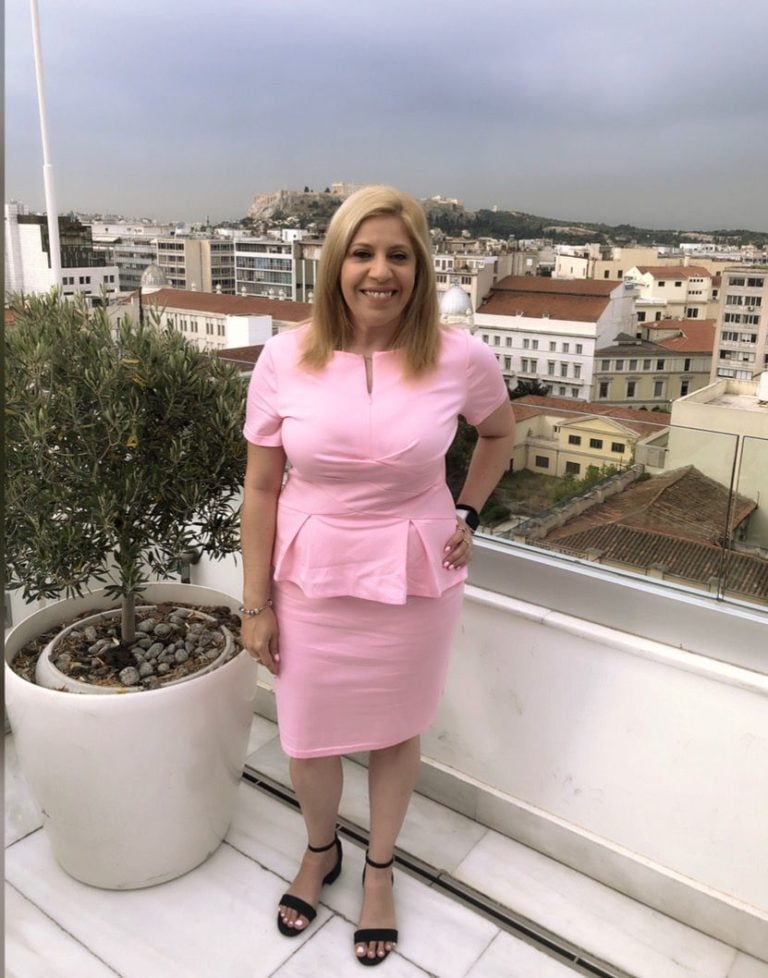When Dr Maria Irini Avgoulas’ father suffered a heart attack and survived she used the trauma as inspiration to conduct ground-breaking research in the understanding of culture and health.
Since 2011 Dr Avgoulas, an Academic at La Trobe University in Melbourne has published several significant papers which highlight how Greek Australians approached illness. One of those included a PhD at Deakin University in ‘Health Beliefs and Practices in Three Generations of Greek Australian Women in Melbourne’.
Dr Avgoulas explained how her father’s cardiac event inspired her first study in 2011 that led to eye-opening conclusions on how the Greek elderly adjust to cardiovascular disease.
“That where my interest started,” she told Neos Kosmos. “I’ve actually dedicated my PhD to my parents and to all the Immigrants of the Greek diaspora. When my dad had a massive heart attack it was quite unexpected as he had blocked arteries and it was touch and go. He was told from his cardiologist, that you need to stop smoking and he stopped cold turkey. He is great now. I found that there was research out there that Greek people had a lot of risk factors for heart disease but they weren’t dying from heart disease.”
One of the major findings in her research that showed why the death rate was low was due to factors such as resilience during the recovery process, with religion a major source of strength in this group.
READ MORE: Most Greeks still blame migraines on evil eye

“Looking at it from the Greek Orthodox religion there is an element of fate,” said Dr Avgoulas. “Which then gives people who have heart disease or a heart attack an element of answering the question of ‘why did this happen to me?’ It could be something that was grammeno (written) to happen to me. So it gives them that ability to accept it and receive treatment. But also having that family connection, that social connectedness with the nuclear family – but also, that community connection was huge. My dad, for example, recovered because I’d say things to him like, ‘Get better yia mena baba (for me dad). For Greeks, recovery depends on family and the element of trust is key.”
For her paper, ‘The Significance of the Greek Orthodox Religion for 2nd Generation Greek Australian young women Dr Avgoulas found that religion also plays a significant role in the lives of younger Greek Australians.
“This is where I looked at health beliefs and practices starting with grandmothers who came from Greece as well as their daughters and granddaughters who were born in Australia,” she said, finding that she found it significant that many beliefs have been passed down from one generation to the next, withstanding the test of time.
“Their belief in the Greek Orthodox religion, in food, applying oil to injuries things like xematiasma and the mati (the evil eye) were strong beliefs. They also spoke to me about mental health conditions and how doctors can’t deal with these issues. But again I found that their religious beliefs helped with the ‘why’ question and it helped them move on.”
Dr Avgoulas’ research is so well-regarded that she has been travelling to Greece (yearly) since 2012 and in 2020 is organising a stream at an Athens conference (https://www.atiner.gr/psydia) and is presenting on the topic: ‘The Significance of Community for Greek Australians Living in Diaspora’.
READ MORE: Evil eye removal, card readings and energy cleansings. Sham or sound?
She has also been invited by the Athens Institute for Education and Research (ATINER) to write a paper in Greek and contribute to a journal in 2021 that will celebrate Greece’s bicentennial War of Independence. The draft is titled ‘The Creation of Little Athens: The Story of the Greek Diaspora in Melbourne, Australia’.
“This is a big honour because it’s Australian research that they are interested in,” said Dr Avgoulas.
“It’s 200 years since Greece managed to survive the devastation so contributing to this journal around the diaspora experience and how health is understood in the lands of the diaspora community is such a big thing for me.”
Lastly Dr Avgoulas feels that her research is vital in giving much needed insight in how to provide patients from ethnic backgrounds the maximum level of care.
“We live in a multicultural community, in order to give those communities equal health care we need to understand their culture and their diaspora experience, she said.
“It’s not one-size-fits-all when it comes to health. With Greek people, when someone close to us ill we flock. We tend to stay longer in the hospital than anyone else, often partners bring food as well. Medical staff need to understand that family don’t break the rules of visiting hours for example because they disrespect policy. It’s more about what is culturally accepted and higher powers need to accept that. For example instead of leaving at 8pm we stay till 11pm and it’s what our culture tell us to do for our loved one who is unwell. So that is why I found that culture and social environment plays a big part in the way we understand illness.”









